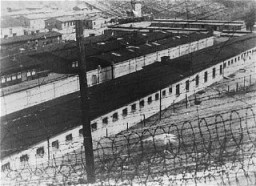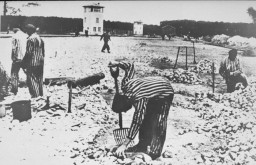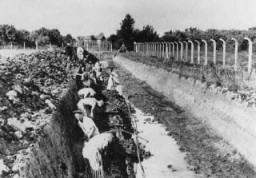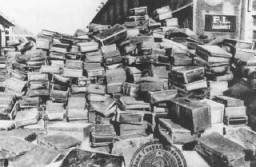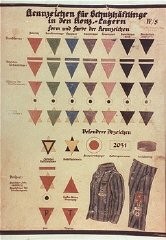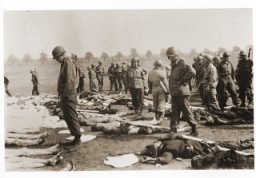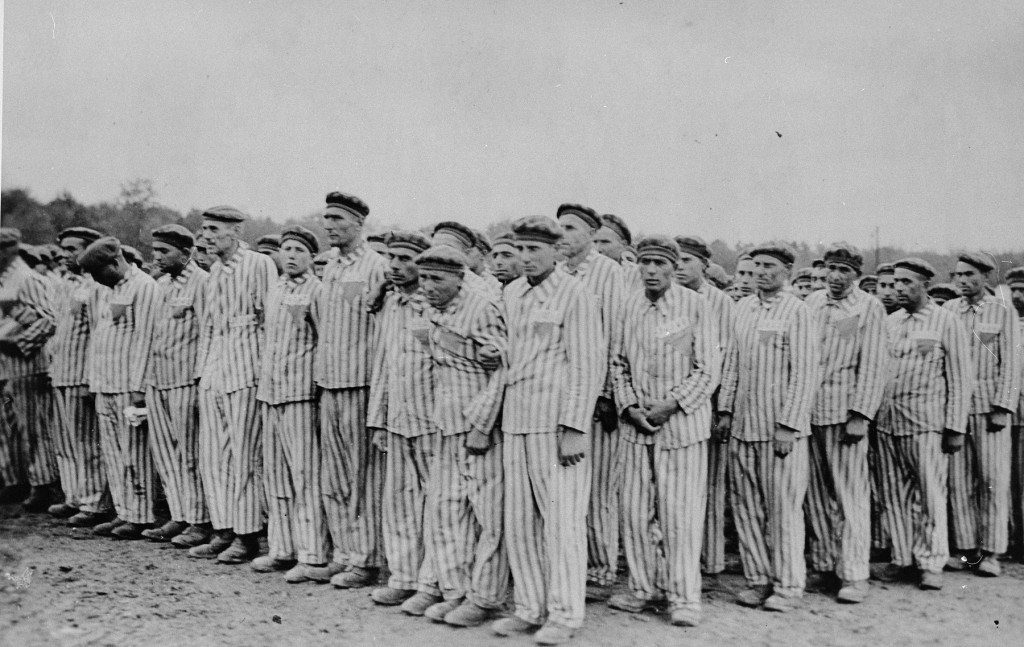
Classification System in Nazi Concentration Camps
Victims of Persecution
Among the first victims of persecution in Nazi Germany were political opponents—primarily Communists, Social Democrats, and trade unionists. Jehovah's Witnesses refused to serve in the German army or take an oath of obedience to Adolf Hitler and consequently were also targeted. The Nazis carried out a campaign against male homosexuality and persecuted gay men between 1933 and 1945. They claimed that sexual relations between men were a destructive vice that would lead to the ruin of the German people. Gay men and men accused of homosexuality were incarcerated in prisons; many were later remanded to concentration camps following the completion of their sentences.
The Nazis persecuted those they considered to be racially inferior. Nazi racial ideology primarily vilified Jews, but also propagated hatred for Roma (Gypsies) and Black people. The Nazis viewed Jews as racial enemies and subjected them to arbitrary arrest, internment, and murder. Roma were also singled out on racial grounds for persecution. The Nazis viewed Poles and other Slavs as inferior, and slated them for subjugation, forced labor, and sometimes death. Jewish prisoners received the most brutal treatment in Nazi concentration camps.
Identifying Prisoners: The Marking System
From 1938, Jews in the camps were identified by a yellow star sewn onto their prison uniforms, a perversion of the Jewish Star of David symbol. After 1939 and with some variation from camp to camp, the categories of prisoners were easily identified by a marking system combining a colored inverted triangle with lettering. The badges sewn onto prisoner uniforms enabled SS guards to identify the alleged grounds for incarceration.
Criminals were marked with green inverted triangles, political prisoners with red, "asocials" (including Roma, nonconformists, vagrants, and other groups) with black or—in the case of Roma in some camps—brown triangles. Gay men and men accused of homosexuality were identified with pink triangles. And Jehovah's Witnesses were identified with purple ones. Non-German prisoners were identified by the first letter of the German name for their home country, which was sewn onto their badge. The two triangles forming the Jewish star badge would both be yellow unless the Jewish prisoner was included in one of the other prisoner categories. A Jewish political prisoner, for example, would be identified with a yellow triangle beneath a red triangle.
The Nazis required Jews to wear the yellow Star of David not only in the camps but throughout most of occupied Europe.
Critical Thinking Questions
- Why was there a system of identification and badging within the camp system, if the prisoners are all incarcerated?
- How and why do badges and other visible forms of identification isolate members of a group? Could badges also build a group's solidarity?
- Are there examples of minorities today that are separated by visible identification in your country or others? What choices do members of the group have? What pressures and motivations contribute to the decision to set up this system?
